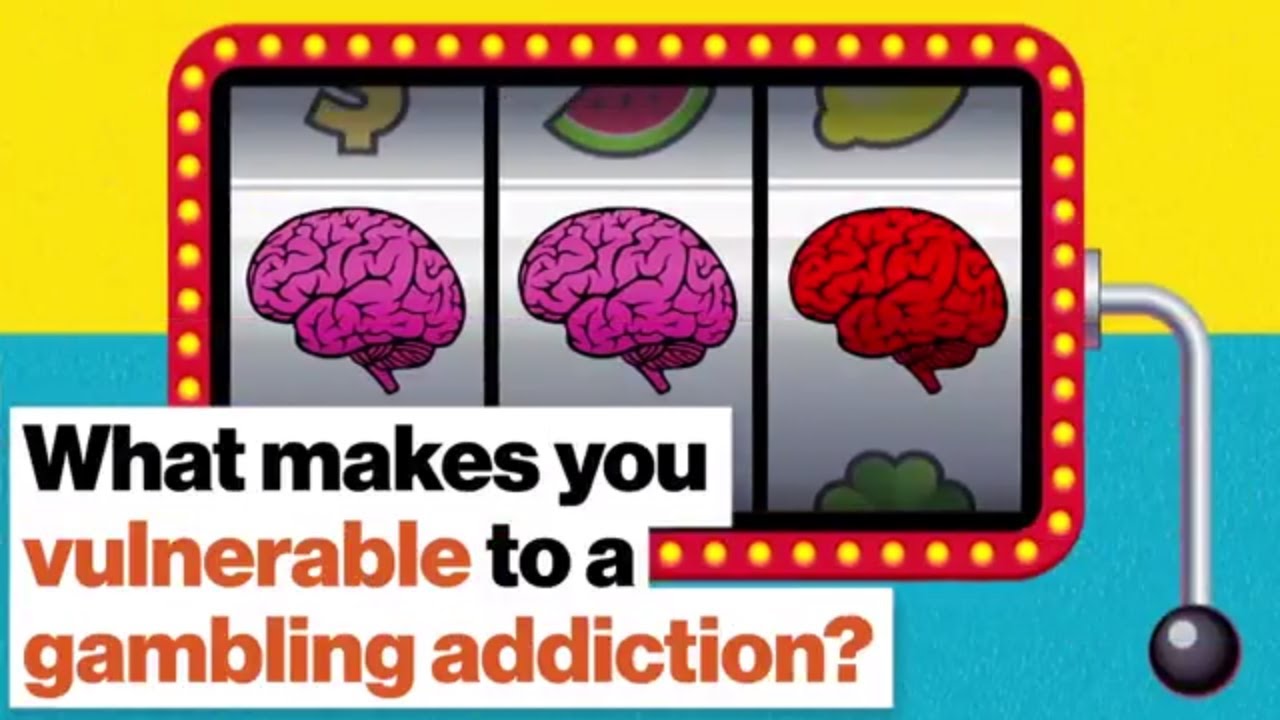The Psychology And Science Behind Gambling Behavior - What Makes People Gamble?
The psychology and science behind gambling behavior is a complex and fascinating topic that has intrigued researchers for decades.
Author:Suleman ShahReviewer:Han JuMar 06, 20233 Shares378 Views

The psychology and science behind gambling behavioris a complex and fascinating topic that has intrigued researchers for decades.
Why do people gamble? What drives them to continue gambling, even when it becomes detrimental to their financial and emotional well-being?
These are just some of the questions that have led psychologists and scientists to explore the underlying mechanisms of gambling behavior.
In this article, we will delve into the psychology and sciencebehind gambling behavior, examining the various factors that influence our desire to gamble and the potential risks associated with excessive gambling.

What makes you vulnerable to a gambling addiction? | Maia Szalavitz
The Role Of Dopamine
Dopamine is a neurotransmitter in the brain that plays a key role in pleasure and reward. When a person engages in rewarding behaviors, such as eating or engaging in sexual activity, the brain releases dopamine.
This reinforces the behavior and makes it more likely that the person will engage in that behavior again in the future.
When a person gambles, the brain also releases dopamine, which reinforces the behavior and makes it more likely that the person will continue to gamble.
Over time, however, the brain may become desensitized to the effects of dopamine, leading to a need for greater stimulation in order to achieve the same level of pleasure and reward. This can contribute to the development of gambling addiction.
Research has shown that people with gambling addiction have fewer dopamine receptors in the brain than people without gambling addiction.
This suggests that people with gambling addiction may have a lower sensitivity to dopamine, which can contribute to the need for greater stimulation.
While dopamine plays a key role in the development of gambling addiction, it is not the only factor involved. Other factors, such as personality traits, cognitive biases, and social and cultural factors, can also contribute to the development of gambling addiction.
The Link Between Gambling And Personality Traits
Research has found that certain personality traits may be linked to a higher risk of developing gambling addiction. These traits include impulsivity, sensation-seeking, and a tendency to take risks.
Impulsivity refers to a lack of self-control or a tendency to act on impulse without considering the consequences. People who are highly impulsive may be more prone to developing gambling addiction because they may have difficulty controlling their urges to gamble.
Sensation-seeking refers to a desire for novel or intense experiences. People who are highly sensation-seeking may be more prone to developing gambling addiction because they may find the thrill of gambling to be particularly appealing.
Risk-taking refers to a willingness to take risks, even in the face of potential negative consequences. People who are highly risk-taking may be more prone to developing gambling addiction because they may be more willing to take risks in order to potentially win big.
Additionally, people who have a historyof substance abuse or mental healthdisorders may be more likely to develop gambling addiction. This may be because these individuals may have underlying issues that make them more prone to addiction in general.
While personality traits can play a role in the development of gambling addiction, it's important to note that not everyone with these traits will develop an addiction.
Other factors, such as social and cultural factors, cognitive biases, and genetic factors, can also contribute to the development of gambling addiction.
The Impact Of Culture And Social Norms
Culture and social norms can play a significant role in shaping attitudes towards gambling and can impact the prevalence of gambling addiction. In some cultures, gambling may be viewed as a harmless form of entertainment, while in othersit may be seen as a vice or even illegal.
In cultures where gambling is widely accepted and encouraged, such as in some Western countries, the prevalence of gambling addiction may be higher. This is because people may be more likely to engage in gambling behavior and may be less likely to seek help for gambling addiction due to a lack of social stigma.
Conversely, in cultures where gambling is frowned upon or illegal, the prevalence of gambling addiction may be lower. However, this may also lead to an increase in other forms of addiction, such as substance abuse.
Social norms can also impact gambling behavior. For example, if a person's social group frequently engages in gambling, the person may be more likely to engage in gambling behavior themselves.
Additionally, if a person perceives gambling as a socially acceptable behavior, they may be more likely to engage in gambling behavior themselves.
It's important to note that cultural and social factors are just one piece of the puzzle when it comes to the development of gambling addiction. Other factors, such as personality traits, cognitive biases, and genetic factors, can also contribute to the development of gambling addiction.
The Role Of Cognitive Biases
Cognitive biases are patterns of thinking that can impact decision-making and judgment. In the context of gambling, cognitive biases can contribute to the development of gambling addiction.
One common cognitive bias that can impact gambling behavior is the illusion of control. This refers to the belief that a person has more control over the outcome of a situation than they actually do.
In the context of gambling, a person may believe that they can influence the outcome of a game or that they have a "system" for winning, when in reality the outcome is determined by chance.
Another cognitive bias that can impact gambling behavior is the gambler's fallacy. This refers to the belief that past events can influence the likelihood of future events.
For example, a person may believe that if they have lost several rounds of a game, they are more likely to win the next round, when in reality each round is independent and the outcome is determined by chance.
The availability heuristic is another cognitive bias that can impact gambling behavior. This refers to the tendency to overestimate the likelihood of events that are easily remembered or recalled.
For example, a person may believe that they are more likely to win a jackpot because they have heard stories of other people winning jackpots, when in reality the odds of winning a jackpot are very low.
Cognitive biases can impact gambling behavior by influencing a person's perception of the risks and rewards of gambling. This can lead to an overestimation of the chances of winning and an underestimation of the potential negative consequences of gambling, such as financial problems and addiction.
People Also Ask
What Factors Contribute To Gambling Addiction?
There are several factors that can contribute to the development of gambling addiction, including biological, psychological, and social factors.
Biologically, gambling addiction may be linked to imbalances in certain neurotransmitters in the brain, such as dopamine and serotonin.
Psychologically, people with certain personality traits, such as impulsivity and sensation seeking, may be more prone to developing gambling addiction. Social factors, such as peer pressure and cultural norms surrounding gambling, may also play a role.
How Does The Brain React To Gambling?
When a person gambles, their brain releases dopamine, a neurotransmitter associated with pleasure and reward. This dopamine release reinforces the behavior, making it more likely that the person will continue to gamble.
Over time, however, the brain may become desensitized to the effects of dopamine, leading to a need for greater stimulation in order to achieve the same level of pleasure and reward. This can contribute to the development of gambling addiction.
Can Gambling Addiction Be Treated?
Yes, gambling addiction can be treated. Treatment typically involves a combination of behavioral therapyand medication, such as antidepressants or antipsychotics.
Cognitive behavioral therapy, in particular, has been shown to be effective in helping people with gambling addiction. Support groups, such as Gamblers Anonymous, can also be helpful in providing emotional support and strategies for managing the addiction.
Are Some Types Of Gambling More Addictive Than Others?
Some types of gambling may be more addictive than others. For example, slot machines have been shown to be particularly addictive due to their high speed and the frequency with which players receive small rewards.
Additionally, online gambling may be particularly addictive due to its convenience and accessibility.
How Can Friends And Family Members Help Someone With Gambling Addiction?
If you suspect that a friend or family member has a gambling addiction, it's important to approach them with empathy and understanding. Encourage them to seek professional help, and offer to accompany them to appointments or support groups.
Avoid enabling their behavior by refusing to lend them money or bail them out of financial trouble. Finally, take care of your own emotional well-being by seeking support for yourself if necessary.
Final Words
The psychology and science behind gambling behavior reveal fascinating insights into the reasons why people engage in this activity.
Through a combination of neurobiological, environmental, and psychological factors, individuals may be drawn to the excitement, risk, and potential rewards of gambling.
However, it is also clear that gambling can become a problematic behavior for some individuals, leading to addiction and other negative consequences.
By better understanding the underlying motivations and mechanisms of gambling behavior, researchers and policymakers can develop more effective interventions and strategies to promote responsible gambling and prevent harm.

Suleman Shah
Author
Suleman Shah is a researcher and freelance writer. As a researcher, he has worked with MNS University of Agriculture, Multan (Pakistan) and Texas A & M University (USA). He regularly writes science articles and blogs for science news website immersse.com and open access publishers OA Publishing London and Scientific Times. He loves to keep himself updated on scientific developments and convert these developments into everyday language to update the readers about the developments in the scientific era. His primary research focus is Plant sciences, and he contributed to this field by publishing his research in scientific journals and presenting his work at many Conferences.
Shah graduated from the University of Agriculture Faisalabad (Pakistan) and started his professional carrier with Jaffer Agro Services and later with the Agriculture Department of the Government of Pakistan. His research interest compelled and attracted him to proceed with his carrier in Plant sciences research. So, he started his Ph.D. in Soil Science at MNS University of Agriculture Multan (Pakistan). Later, he started working as a visiting scholar with Texas A&M University (USA).
Shah’s experience with big Open Excess publishers like Springers, Frontiers, MDPI, etc., testified to his belief in Open Access as a barrier-removing mechanism between researchers and the readers of their research. Shah believes that Open Access is revolutionizing the publication process and benefitting research in all fields.

Han Ju
Reviewer
Hello! I'm Han Ju, the heart behind World Wide Journals. My life is a unique tapestry woven from the threads of news, spirituality, and science, enriched by melodies from my guitar. Raised amidst tales of the ancient and the arcane, I developed a keen eye for the stories that truly matter. Through my work, I seek to bridge the seen with the unseen, marrying the rigor of science with the depth of spirituality.
Each article at World Wide Journals is a piece of this ongoing quest, blending analysis with personal reflection. Whether exploring quantum frontiers or strumming chords under the stars, my aim is to inspire and provoke thought, inviting you into a world where every discovery is a note in the grand symphony of existence.
Welcome aboard this journey of insight and exploration, where curiosity leads and music guides.
Latest Articles
Popular Articles